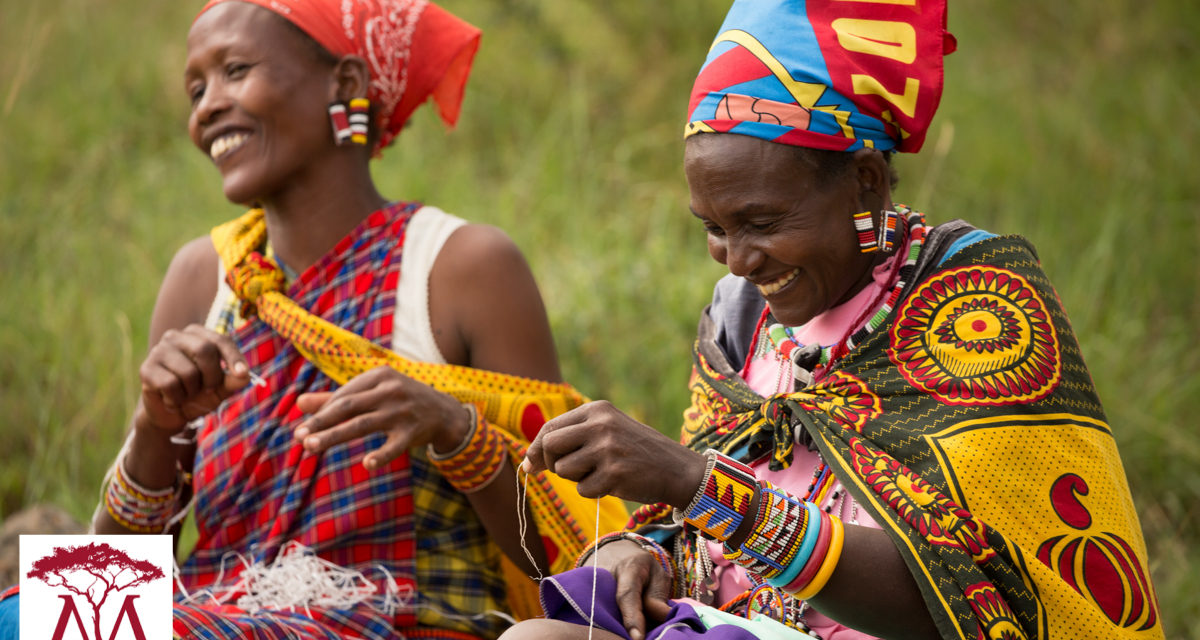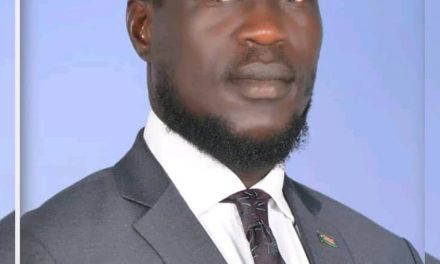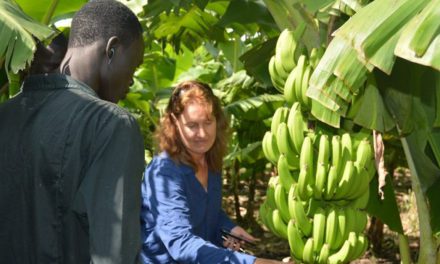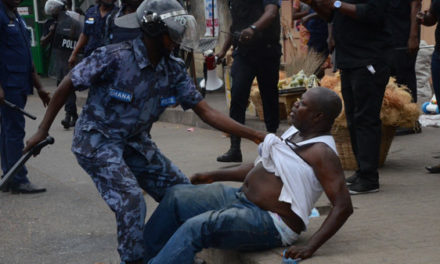
Road toward zero tolerance on Female Genital Mutilation – FGM/C

By Murani Hillary
Efforts to eliminating Female Genital Mutilation- FGM in Kenya by 2023 may have received an upper hand after the Samburu Declaration which was presided over by His Excellency President Uhuru Kenyatta where over 40 top clan elders of the Samburu Community publicly declared to abandon Female Genital Mutilation/Cutting (FGM/C) and Child, Early and Forced Marriages (CEFM). While on the other hand as the world marked International Women’s Day, Her Majesty Queen Elizabeth II awarded a Kenyan woman for her role in empowering women in the country. Reported the Star news paper
The award was presented to her by the British High Commissioner to Kenya Jane Mariott at Tononoka Hall in Mombasa County as a cognition by the queen for her transformational work in campaigning against Female Genital Mutilation (FGM).
Sadia, being a victim of FGM, according to the report, took it upon herself to deliver her fellow women from the harmful practice. She recently launched a book titled The Scars of Female Genital Mutilation to lay bare the realities of what FGM survivors endure. Showed the report.
This coming even after more than 100 girls walked for 10 kilometers at Sereolipi area in Samburu County to create awareness against Female Genital Mutilation early this year.
Women and child right activist Ann Kanai Lelesiit said women and elders have also been convinced to shun FGM after attending a three-day training session on the effects of FGM on life of women.
“We had a training session for women and elders for a period of three days at full Gospel church where we enlightened them about types of FGM, effects of the cut on women especially during baby delivery.” She said.
According to a report by the Relief web, in Kenya, 4 million girls and women have undergone FGM with an overall 21 per cent of girls and women aged 15 to 49 years having been subjected to the practice. The reports records that the risk of FGM depends on certain background characteristics. Girls and women from rural areas, living in poor households, with less education or who identify as Muslim are at greater risk. The practice is highly concentrated in the North Eastern region and in certain ethnic groups
October 2020 the Guardian reported that almost 2,800 girls from the Kuria community in south-western Kenya undergone FGM. The report remarked that every day since late September, girls who had undergone the practice were paraded in the region’s main urban centers, where they were showered with gifts, including cash which is a clear derogation of Kenya’s effort to end FGM.
During the Kisima Declaration president Kenyatta said, “If we want to achieve our national goals, we have to change and offer our girls opportunities in education to excel’’…. “If you look around the world, women are holding high positions and we don’t want to be left behind because of retrogressive cultural activities,” the President said.
“Samburu has been a key FGM hot spot with a prevalence rate of 80% so the signing of this declaration is significant progress and a step in the right direction,” Gender CS Margaret Kobia noted.
A Voice of America VoA report highlighted a story of Beryl Magoko who narrated her ordeal at the age of 10. She recounted that she was not surprised when her Kuria community arranged for her to undergo Female Genital Mutilation (FGM), as it was normal for girls.
However, she was shocked to learn about reconstructive surgery for FGM at a 2013 screening in West Africa of her award-winning documentary “The Cut” — and started to film her own quest to decide whether to undergo this surgery. The story narrates of her journey in educating fellow female gender on FGM.
“I wanted to use myself as a mirror so that women can reflect about their lives … and encourage circumcised women [to realize] that it helps to talk about this trauma,” Magoko, now 35, told Reuters.
“We don’t have to die in silence,” she said from Germany, where she now lives. In her second documentary “In Search…”, which has its U.S. premiere at the Human Rights Watch Film Festival on June 17, Magoko talks frankly with other women about FGM and her uncertainties about undergoing surgery to feel complete again. The report showed.
Magoko’s goal is to screen “In Search…” where FGM is practiced, including her home country Kenya. Magoko said she wants to share the stories of FGM survivors and shatter the stigma, but she needed to help herself before she could help others.
“There’s no way I could help other women if my story or my history is still present and it’s haunting me,” she said. “I felt like young Beryl got justice.”
Voice of America notes that Six African countries — Chad, Liberia, Mali, Sierra Leone, Somalia and Sudan — do not criminalize FGM, which world leaders pledged to end under global development goals in 2015.
According to the VoA, ‘The World Health Organization says about 200 million women and girls worldwide have undergone FGM, which involves the partial or total removal of the external genitalia and can cause chronic pain, infertility and death.
Reconstructive surgery involves breaking open the scar formed by FGM, and pulling the clitoris, the majority of which lies beneath the surface, back to the surface, relieving the pain associated with FGM and restoring sensitivity.
The technique was developed in 2004 by French urologist Pierre Foldes, who has trained hundreds of doctors in the practice. Doctors from Clitoraid, a U.S.-based non-profit, have performed 500 such surgeries since 2009 and have a two-year waiting list.’
Amref has been working with the communities to end FGM, using ‘Community Dialogue to End FGM/C and CEFM’
Koota Injena, meaning “come, let’s talk” in Borana, is a three-year program which begun in 2017, where Koota Injena has been engaging elders and influential community leaders as levers of change in attitudes around CEFM and FGM/C. With the goal of ending these harmful practices and to redefine the value of girls in these communities, Koota Injena has reached 40 clans across the Samburu, Borana, Rendille, and Gabra communities in Samburu and Marsabit Counties. Noted Amref
Since the initiative began, over 450 clan elders have committed to ending FGM/C in their communities. Amref has also trained over 200 community champions to facilitate dialogues to change people’s attitudes about these practices.
The Kisima Declaration aligns with a June 2019 proclamation by President Kenyatta to end FGM/C in Kenya by 2022. Kenya banned Female Genital Mutilation/cut –FGM/C in 2011.
According to Relief Web Kenya’s progress towards abandoning FGM is strong compared to other countries in Eastern and Southern Africa.





















Recent Comments